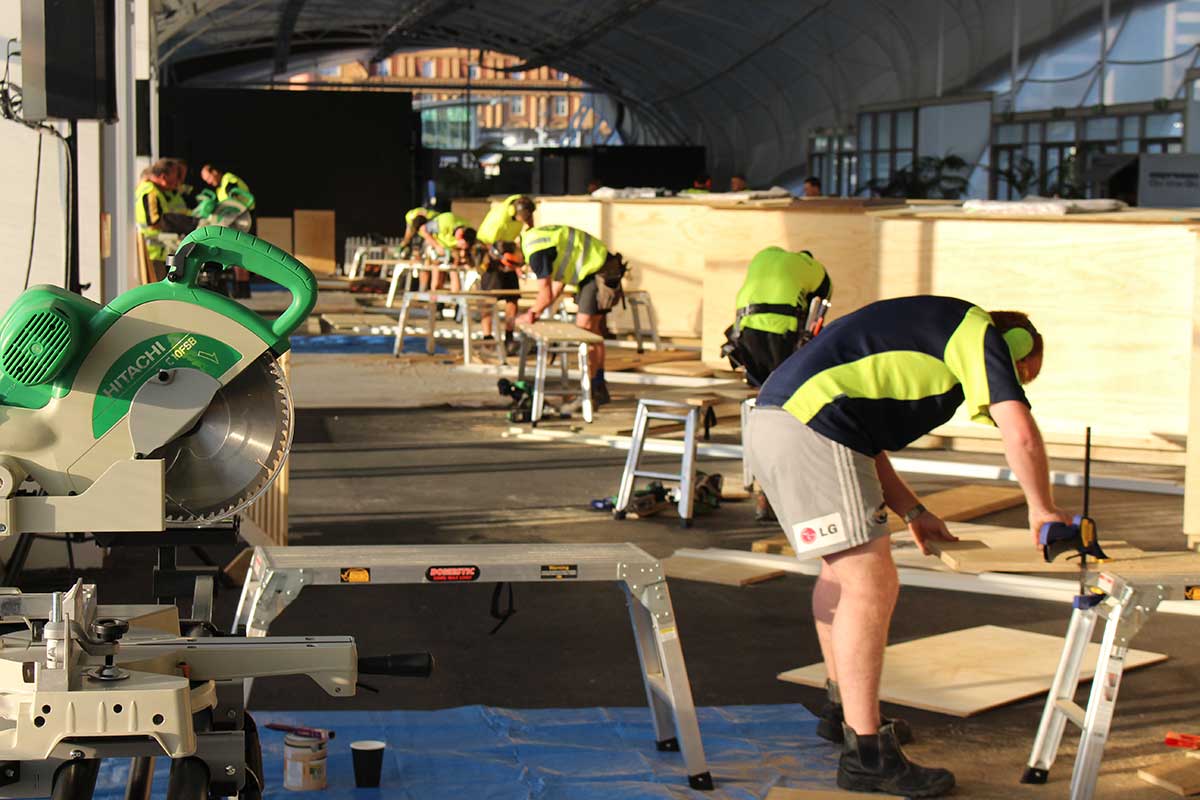The rot is setting in, and sadly, after tourism, it may be construction that is next to be badly hit. Most construction projects operate on relatively small margins (that can disappear altogether if anything goes wrong), frequent cash payments that pay suppliers, contractors and salaries, but not much else, and often endure project delays and contract retentions.
Fletcher Building, currently the largest commercial construction company in the country has been hit hard, just like everyone else in construction. Because the industry relies on ‘regular’ payments that come in usually at the end of a particular stage, they can run out of money very quickly. If contractors don’t get paid for last week’s work, they may well not turn up this week. So Fletcher Building has decided to cut its workers’ pay, gradually (over the next few weeks) until they reach an eye watering 70% pay cut, at least until they can all get back to work.
Not everyone is being given such a large haircut though.
On Wednesday Fletcher Building gave staff 24-hours notice to accept a pay proposal that would see salaries slash by up to 70 per cent in the weeks after the lockdown.
Meanwhile, senior executives including chief executive Ross Taylor, whose salary including benefits was $5.3 million last year, would take a 15 per cent pay cut over three months.
Now I do buy into the claim that good executives have to be paid extremely well to be retained, but surely that does not apply at a time like this. A 70% pay cut for him would still give him a salary of approximately $1.59 million, which surely is enough to live on. Anyway, it is not as if he can head off to greener pastures. Nobody is hiring at present. And I’m sure $3.7 million, together with similar savings on their other top executives, will make a big difference to the company’s ability to ride out the current crisis until work resumes as normal.
Former prime minister Sir John Key says businesses like Fletcher Building should be concerned about their reputation when proposing restructures.
Key said normally executives would take a bigger cut than 15 per cent.
“Something all companies need to think about is that reputation really matters,” Key said.
Fletchers have a number of projects in progress, but the big question is; how long will it be before they can get back to work, and how long will it be before they start getting paid again?
Key said Fletcher Building should have applied “the front page of the paper test” to think about how its announcements would be perceived.
“Everyone out there should think in an environment where anxiety is going to go up and scrutiny of decisions is going to go up.
“I don’t know all the rationale Ross Taylor and the team went through but they still need to think about how that’s perceived,” Key said.
Let’s just say it isn’t being perceived well. From shareholders who have had to forgo their dividends, to clients who can see the stupidity of this approach, to workers who might not be able to pay their mortgages, there will be very few supporters of this policy.
(UPDATE: Since writing this article, the Fletchers board has decided to make their executives double their pay cut and now take a 30% salary drop. This proves my point about perception being important, and also proves Sir John’s point that they need to pass a ‘front page test’, but frankly, it is still not enough. I think Ross Taylor can probably survive on $3,710,000 pa, but how some of the staff will survive on less than $40,000 pa through this crisis is another question.)
Even though the executives are, by all accounts, continuing to work, sacrifices should be made by all. The company will perform better if all possible savings are made now, and millions of dollars going to executives who can do little but sit on their hands at the moment is doing nothing for the future prospects of the company. On the contrary, it demonstrates what the board think is most important, as they, of course, made this decision themselves.
Amalgamated Workers Union national secretary Maurice Davis said Fletcher Building’s senior leaders were “out of touch” with their workforce.
“A lot of goodwill has been lost over they way they’ve handled this. It’s disappointing to see,” Davis said.
“Fletcher’s executives have a sense of entitlement thinking it’s okay to be taking a 15 per cent pay cut on six figure salaries.”
Davis said he had been in talks with leaders of other companies that had taken pay cuts of up to 50 per cent to save their businesses from the economic impact of the coronavirus.
I am reluctant to agree with anyone who is a senior official in a union, but we are constantly being told to ‘be kind’, and that ‘we are all in this together’. At Fletcher Building though, the message is slightly different. It sounds more like – “All animals are equal, but some are more equal than others”.
If you enjoyed this BFD article please consider sharing it with your friends.

